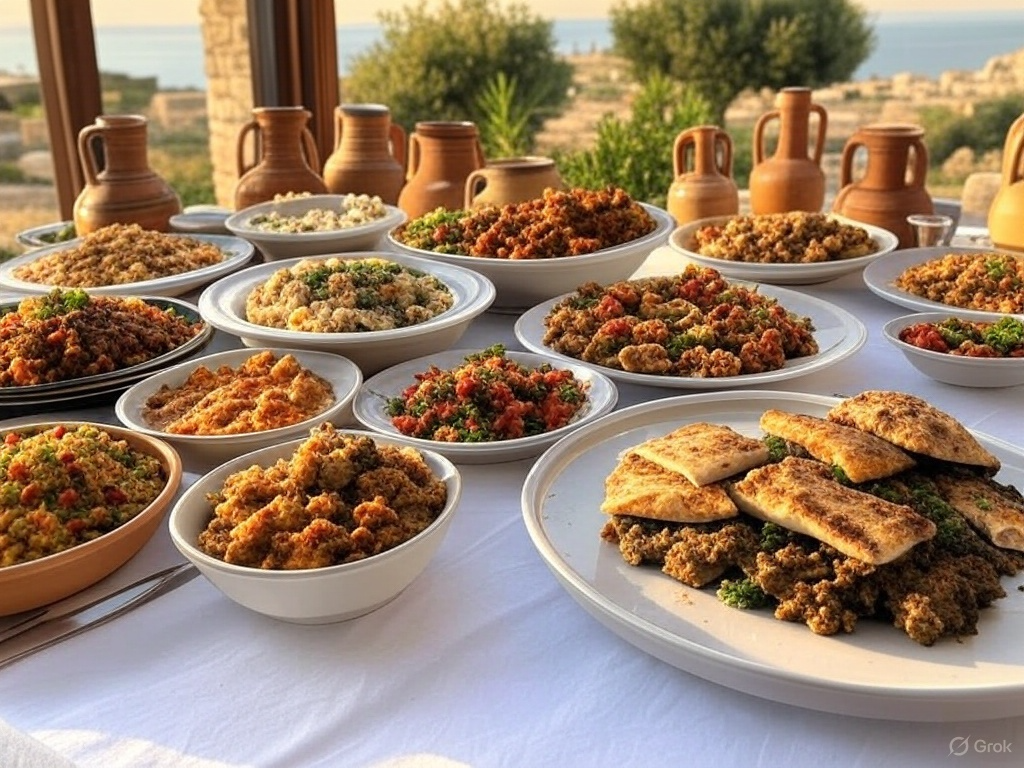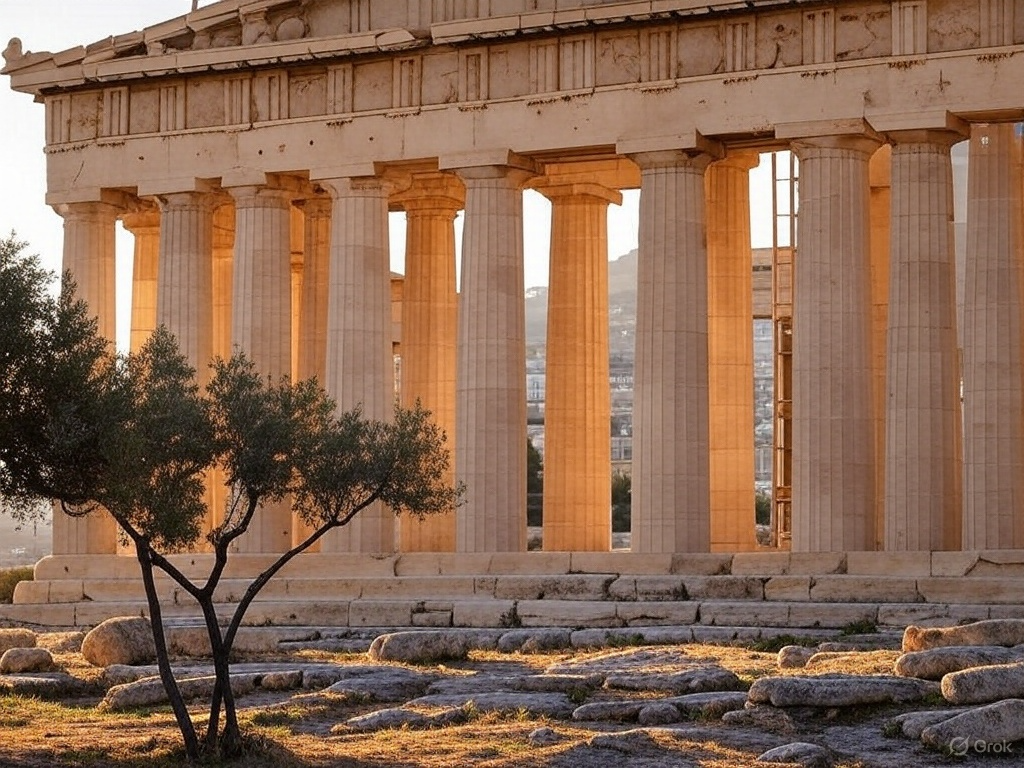Our modern eating habits are radically different from those of our ancient ancestors, though we still retain some of them.
The ancient Greeks woke up as soon as the sun rose and their breakfast was "kykeonas", a drink made of boiled thyme seasoned with sesame or mint, milk and lukewarm water with honey, and "akratisma", i.e. bread dipped in wine, together with olives and figs.
At about eleven o'clock they ate the "ariston," which consisted of bread, cheese, garlic, or onions. At three o'clock in the afternoon, they had the "esperisma", a light meal to last them until the evening.
Most of their meals were small and only in the evening they ate more food, in the so-called "Symposion", usually legumes, meat or fish, cheese, olives, pies and for dessert fruits, nuts, and sweets.
So the saying "breakfast is the most important meal of the day" probably came to us from the West.
The wine was an important element in the daily life of the Greeks. They drank it for natural hydration and added the appropriate amount of water depending on the time of day. The closer the night came, the less water they added. Sometimes they infused the wine with fresh or seawater and at other times they flavored it with rosemary or honey. Food and wine flowed in abundance at the banquets, creating an ideal atmosphere for philosophical and political discussions.
In the time of Pericles (5th cent. BC.), the food eaten by those present at an important banquet consisted of hare cooked with mint and thyme, lamb or pork skewers soaked in coarse salt, wine, and oil, with which the meat was deglazed while cooking, flour sweets sprinkled with honeyed wine and sesame seeds, savory rolls, roast quail, cheese from Achaia, figs, and honey from Attica, wine from Chios and Lesbos, grapes from the Mendi of Pallini, eels and fish from Lake Kopaida, seafood from Euboea and barley bread from Pylos.
The Athenians also had a great love for seafood and shellfish. Red mullets and sea bream often graced the tables of the rich, while sardines were the usual dish of the poor.
Greeks raised ducks, geese, quail, and chickens to produce eggs. Some authors even speak of pheasant eggs and Egyptian goose eggs, although we can assume that these were rare delicacies. The consumption of meat and seafood was related to the financial situation of the family, but also to whether they lived in the city, in the countryside or near the sea.
Delicacies and salads
The ancients preferred their salads raw, so as not to lose their nutritional value and they obtained the oil from unripe olives. The oils of Samos and Ikaria were famous. They also liked cured meats and legumes. Plato in his work "Politeia" praises the vegetarian and natural diet. Many houses had small gardens where they also grew legumes, onions, lettuce, peas, artichokes, celery, dill, and mint. Other herbs such as mushrooms, fennel, asparagus, and even nettles were sought in rivers and fields. Among the most popular products of the ancients were cucumbers and figs.
Fruits like orviklata(sweet apples), quinces, kokkimba (peaches), grapes, figs are a great love of the ancients and are never missing from any dinner.
The most important place on the table, however, was occupied by bread. Cereals are the main ingredient in their recipes.
The cooks of the time
The first professional cooks, as well as confectioners, appear in the 4th century BC. Plato mentions the confectioner Thearion, but the cook who achieved the greatest fame was Arhestratos, from Gela, Lower Italy. A famous cook was Mithaikos, mentioned by Plato in the work "Gorgias", and he was the one who wrote the "Sicilian Opsopoiia", recipes based on the Sicilian diet. Those Athenians who wanted to organize a celebration or a banquet found and hired the cooks in the market. But the cooks themselves often passed outside the rich houses, promoting their art and ready to offer their services.
The black broth and the diet of the sick
The hard way of life of the Lacedaemonians and the demands of their military society did not permit of pleasures and delights of a gastronomic kind and in general. The chief food of the athletes and warriors of Sparta was the famous "black broth," a mixture of meat, blood, and vinegar. In general, we can say that the Spartans ate little and did not prefer the good taste.
The ancient Greek physicians agree on the need for a special diet for the sick, however, they disagree on what foods to include. In his work, Hippocrates refers to the beneficial properties of a certain food, which is easily assimilated by the body and causes a decrease in fever.









